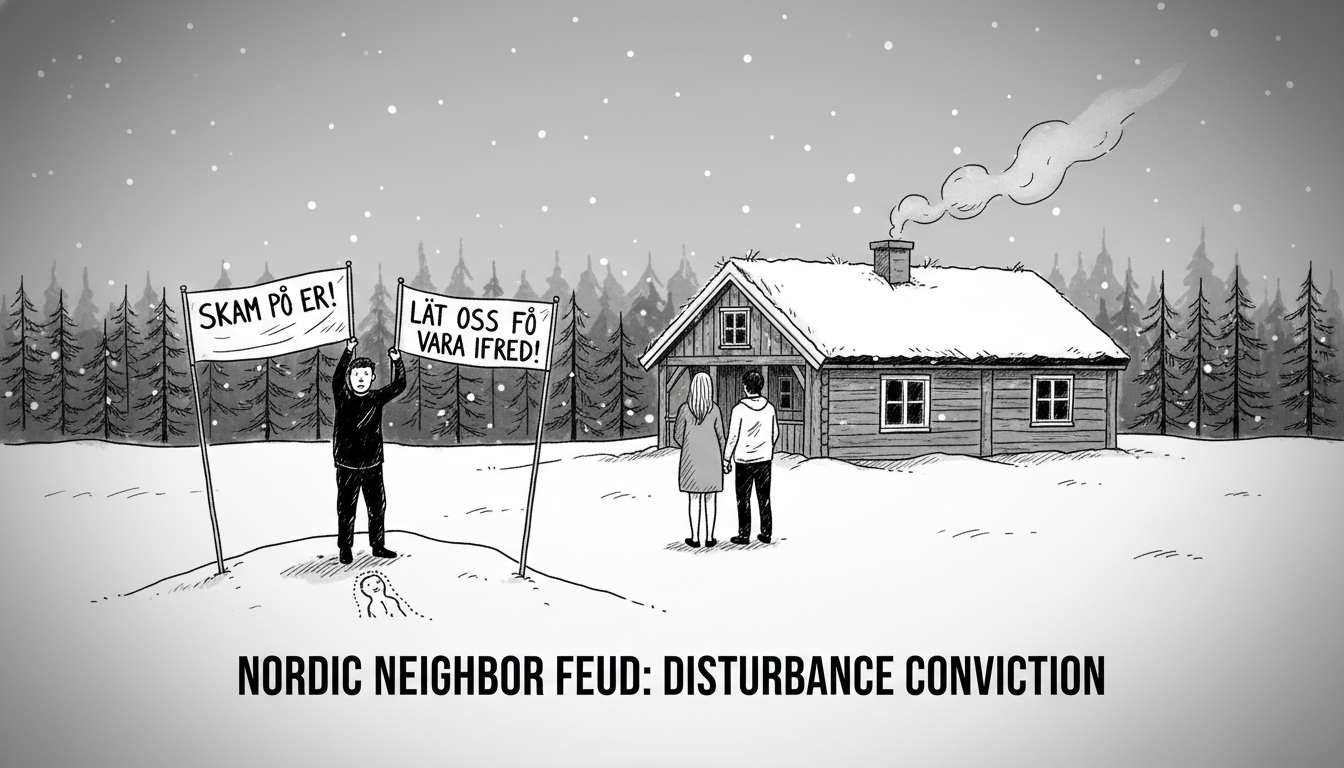A long-running neighbor conflict in northern Sweden has resulted in another conviction for the man at the center of the dispute. The Haparanda District Court found the man guilty of repeatedly exposing his buttocks and genitals to his neighbors and displaying sexually offensive banners.
The conflict in Vojakkala, a small village in Sweden's far north, has consumed significant police resources over the years. What began as various forms of harassment escalated dramatically in 2008 with an attempted axe murder. Now the same man faces new legal consequences for his ongoing behavior toward neighbors Matti and his wife.
According to court documents, the man repeatedly pulled down his pants to expose himself to his neighbors. He also allegedly threw horse manure and shouted insults at the couple. The prosecution presented evidence of the man displaying a banner with the word "Homopapat" in a sexually offensive manner toward his neighbor.
The defendant offered his perspective during the trial. He claimed the neighbors had harassed him first. "When they make me sad, why can't I do it back then?" he told the court. This defense strategy failed to convince the judges.
The court wrote in its decision that even if the neighbors had behaved as the defendant claimed, that would not excuse his own criminal actions. Judges described the man's behavior as "reckless" and found it had violated the couple's peace in a tangible way.
However, the court did not convict the man on all allegations. Judges found insufficient evidence that he had thrown horse manure or other objects onto the couple's property. The exact property line location remained unclear. The court also dismissed claims about the man shining bright LED lights into the couple's home during evenings due to lack of evidence.
For the proven offenses, the man received a sentence of 2,000 Swedish kronor in day fines. He must also pay 16,000 kronor in damages to the victims for the violation of their peace.
This case highlights the challenges Swedish authorities face with persistent neighbor conflicts in rural areas. Such disputes can escalate over years and consume disproportionate law enforcement resources. The relatively modest financial penalties reflect Sweden's approach to non-violent offenses, focusing on compensation for victims rather than punitive measures.
Neighbor disputes in Sweden typically fall under "ofredande" laws covering disturbance of peace. These laws protect individuals' right to quiet enjoyment of their homes. When conflicts escalate to this level, Swedish courts balance evidence carefully, as seen in this case where some allegations were dismissed while others resulted in conviction.
The resolution leaves questions about whether this will finally end the long-running conflict or merely represent another chapter in the ongoing neighborhood tensions. Small communities in northern Sweden often struggle with limited resources to mediate such disputes before they reach the courts.

